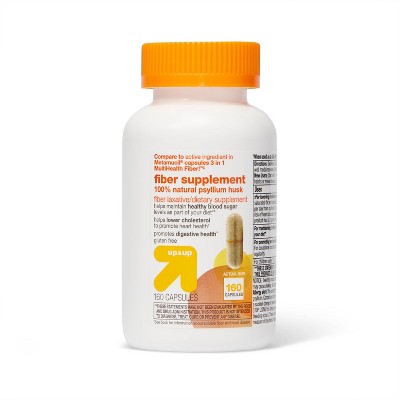Dietary fiber has been a hot topic in recent years among food and nutrition scientists as well as health professionals. We’ve had conversations on the topic of dietary food supplements over the years - the most recent back in Mar’14, according to the blue box on the right.
Scientific studies suggest that dietary fiber is critical to microbial gut health and has important impact on our overall health. I think 30g of fiber is recommended in the North American diet, but nutritionists say that 60g is better. The gut bio-dome either thrives or suffers in direct proportion to the amount of fiber in one’s diet. Science suggests that a healthy gut has about 3,000 different microbes in the gut (tens of trillions in real numbers). Most north Americans have a far smaller variety and lower overall count of healthy microbes in the gut due to a very low consumption of fiber (<30g) and high consumption of meat products that contain anti-biotics. There also mention of a high incidence of prescribed anti-biotics, but that another matter.
In contrast, hunger gatherer societies in south America and Africa tend to have a much higher fiber diet and tend to have a far greater variety of gut microbes, as many as 6,000 different types.
Now, regardless of variety, not all gut microbes are of the healthy type but a large variety assures a “healthy” overall balance and there is an ecology to the variety that suggests that trying to eliminate the “bad” microbes might have a negative impact because it’s not quite a black & white issue of which are good and which are bad and why.
To sum up, I’ve been tracking a variety of nutritional variables in my diet over weeks, more out of boredom and interest than science. I noticed that by fiber intake is about 40% (12-14g) of recommended daily. So I’m thinking that I need to increase my daily dietary fiber intake to see what noticeable impact it has on my health. Specifically, level of energy and ability to burn more fat. Those are some of the claims being made about the benefits of increased dietary fiber intake.
My plan, after the current 3 day fast, is to switch to brown rice and to start eating more baked sweet potatoes as well as lentils. With fall coming, it seems a fitting change from my diet of summer salads and grilled meats.
So, do any of you bother to track your daily fiber intake, even informally, and what types of foods do you regularly consume to ensure a “healthy” dietary fiber intake? Recipes always welcome and make the conversation more interesting, I think.
